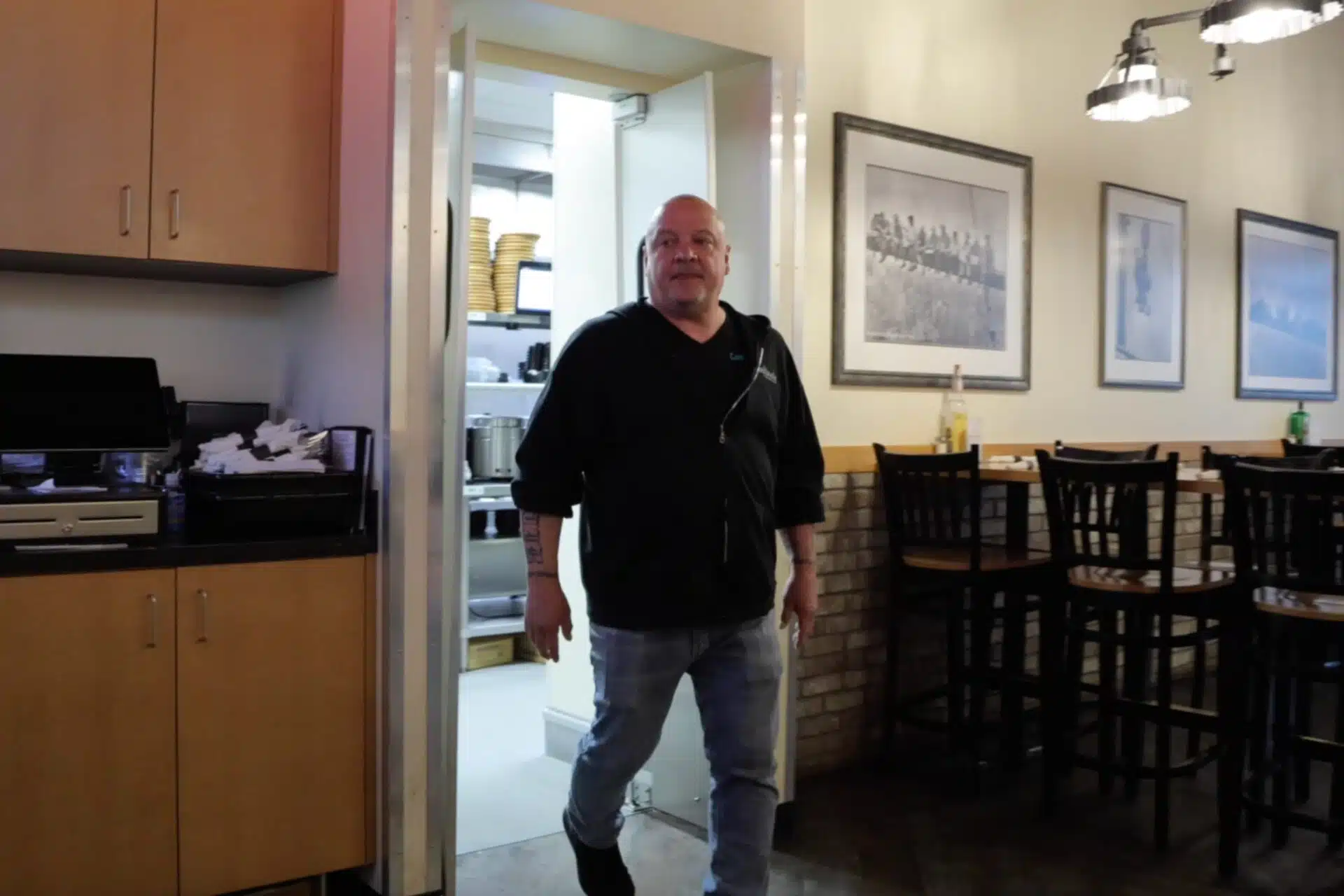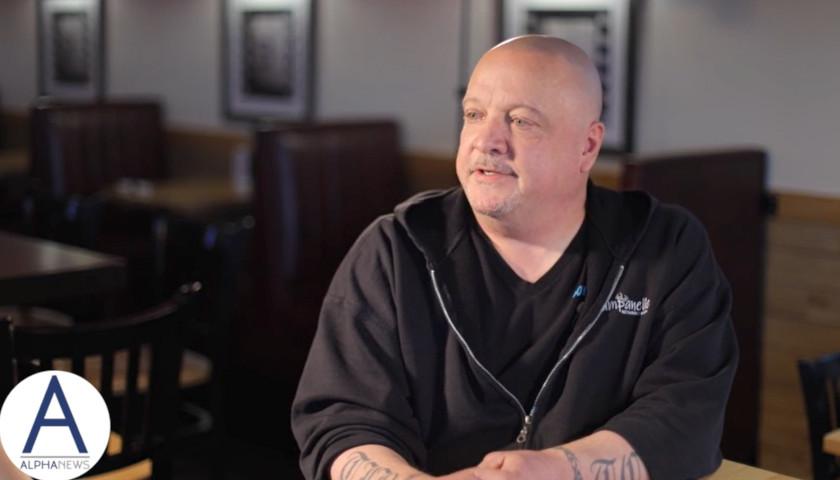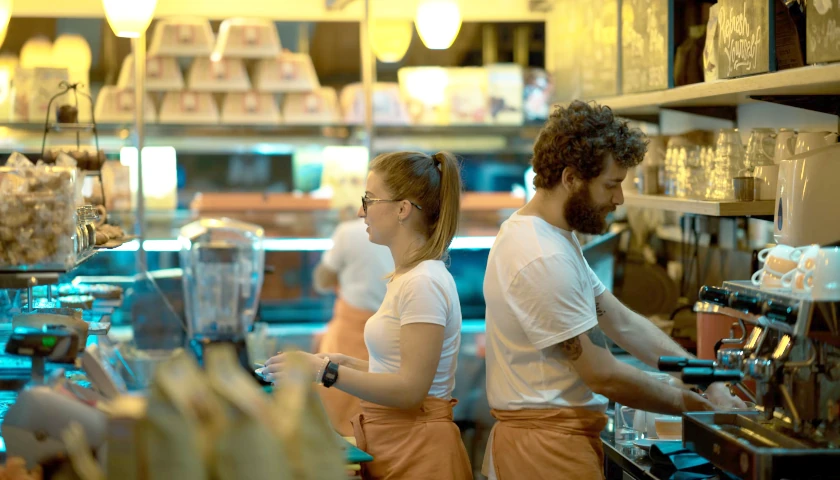by Liz Collin
A lifelong dream to have his own place hasn’t exactly gone as planned for Kent Bergmann behind Campanelle in Lino Lakes.
“The name of the restaurant is nothing more than a noodle. We make those noodles fresh every single morning. It’s a Campanelle noodle is what it’s called. It’s like baked mac and cheese on steroids,” Bergmann explained.
Bergmann is now one of thousands of restaurant owners in Minnesota bracing for new state mandates on employers, including a paid family and medical leave program and a new earned sick and safe time law, after already clearing more hurdles than many can imagine.
“This is going to be for a lot of restaurants that straw that breaks their back,” he said.
COVID struggles
The grand opening of Bergmann’s restaurant coincided with the start of the COVID-19 pandemic.
“We were planning to open March 23 of 2020. We put the signs out a week earlier … and eight hours later we were shut down before we could even open,” Bergmann said.
“We didn’t qualify for any of the PPP. We didn’t qualify for any grant money. We applied for dozens of different grants. We had to be open by March of the prior year in order to qualify for anything. We were kind of that segment that fell through the cracks and didn’t have any support from anybody,” Bergmann said.

The green light finally came months later to at least get cooking again.
“Monday, we got the entire crew here to say we’re opening and when I told them we were opening on Thursday, the entire kitchen staff stood up and walked out and most of the servers and bartenders we have, with the exception of four or five that are still here. They stayed but that’s it. They were still collecting unemployment at $600 more a month and they couldn’t make that if they worked here. We could only open to takeout only,” Bergmann said.
“We could only open to takeout until July. Then we opened up, it was half capacity. As you can see, we don’t have many seats here so our half capacity is 37 people, and trying to get people to come in here at that time was the hardest thing because no one wanted to go out to restaurants because there was so much fear that COVID was spreading through the restaurants,” he said.
Bergmann was critical of how state leaders handled the pandemic, noting the unequal treatment of restaurants compared to big-box stores like Target.
“This industry was decimated by the people making these decisions,” Bergmann said.
According to the Minnesota Department of Employment and Economic Development, hundreds of restaurants permanently closed their doors in 2020.
New mandates
Now, legislative decisions in St. Paul are set to deliver the latest blow, through mandated paid family and medical leave set to begin in 2026 and a new earned sick and safe time law that will take effect Jan. 1, Bergmann said.
“Reading about this earlier this year, I was hoping it wouldn’t go through. I know my business here and it’s going to be nothing but a nightmare for us and the restaurant industry. We’re working on such small margins the way it is, to offer sick leave to so many part-time employees, knowing that some will take advantage of it, exploit it, and use it for not what it’s intended for, which happens with a lot of programs that are out there,” Bergmann pointed out.
“It hurts me financially to offer something like that because if someone calls in sick at the last minute on a slow day, I have to find someone to take the place of that and now I’m paying two people to do the same job to serve the people who are in here,” he said.
Bergmann said he feels restaurant owners had “zero voice” in the new programs, saying legislators pushed these changes through “without realizing what they’re doing to a segment of the service industry.”
“Anybody who has ever asked for time off here has gotten it. To offer up that much time in a year for 20 people … if they get six days, that’s 120 days. Then, they can carry over, they can have over 80 hours the next year that they can bank. That’s a vacation for some people. It’s scary they can push this through like that,” Bergmann said, referring to the sick and safe time law.
Under the law, employees who work at least 80 hours in a year and aren’t independent contractors can earn one hour of sick and safe time for every 30 hours worked, up to 40 hours in a year. Unused hours will carry over to the next year, at a maximum of 80 hours. Sick and safe time must be paid at the same hourly rate an employee earns while working.
This is separate from a new paid family and medical leave program, which will be funded by a 0.7% payroll tax and allow most employees in the state to qualify for up to 20 weeks combined of medical or family leave per year. There are no exemptions for small employers under either program. Republicans in the legislature unsuccessfully attempted to exempt businesses with fewer than 50 employees from the paid family and medical leave program.
The Department of Employment and Economic Development said small businesses can qualify for “premium relief based on the size of the business, as well as assistance grants to help when backfilling for workers on leave.”
“They say you can go somewhere else and do it but you can’t. You can’t. Financially you can’t do it. Everything I have is into this, and then some,” Bergmann said.
He poured $250,000 of his own money into his place to weather the COVID storm. He hasn’t taken a paycheck for himself since opening.
“To be forced to shut down without any compensation and now to be forced to put policies in place that I had no voice in — it’s a few people making the decision for hundreds of thousands of people across this state,” he said.
“Instead, they lumped everyone together. Except for in the pandemic, we were singled out. That was easy for them to single us out. Now we’re OK to be a part of the group as long as it benefits them.”
– – –
Liz Collin has been a truth-teller for 20 years as a multi-Emmy-Award-winning reporter and anchor. Liz is a Worthington, Minnesota native who lives in the suburbs with her husband, son and loyal lab.
Photo “Kent Bergmann” by Alpha News.





